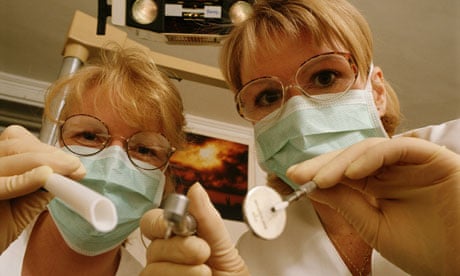Dentists have been warned not to buy a handheld x-ray machine which exposes patients to 10 times the recommended dose of radiation.
The cheap imported devices could also pose a significant risk to dentists and nurses, health officials said.
The Tianjie Dental Falcon scanners can be purchased on eBay for as little as £205, compared with about £4,000 for a safe model.
Officials have confirmed that one UK-based dental practice purchased one of the dangerous machines, and several others have expressed interest in buying one.
Any dental practices that have purchased the machines have been urged to contact the Medicines and Healthcare products Regulatory Agency (MHRA).
Bruce Petrie, of the MHRA's medical devices enforcement team, said: "It's vital that dentists and dental staff do not buy these dental x-ray machines from eBay or other websites because they are not approved and not safe for dentists or patients.
"We have seized 13 of these x-ray machines from the distributor and we are working with eBay and other governments to ensure dentists and patients are protected. We urge anyone who has bought one of these machines to contact us."
Barry Cockcroft, chief dental officer for England and the government's principal dental adviser, added: "It is vitally important that when buying equipment dentists make sure it is appropriate and safe for use. I would urge all dental professionals to be cautious of seemingly cheap devices which may not be fit for purpose, and potentially dangerous."
Clinical evaluator Donald Emerton, who examined the seized devices at King's College hospital, added: "When we tested the x-ray machine we found it did not properly protect either a potential patient, nor the person operating it.
"Over time someone operating this machine, such as a dental assistant, would be exposed to unacceptable levels of accumulated radiation and this would have an increased risk to their health. I certainly wouldn't want someone to use this piece of equipment to take an x-ray of me."
